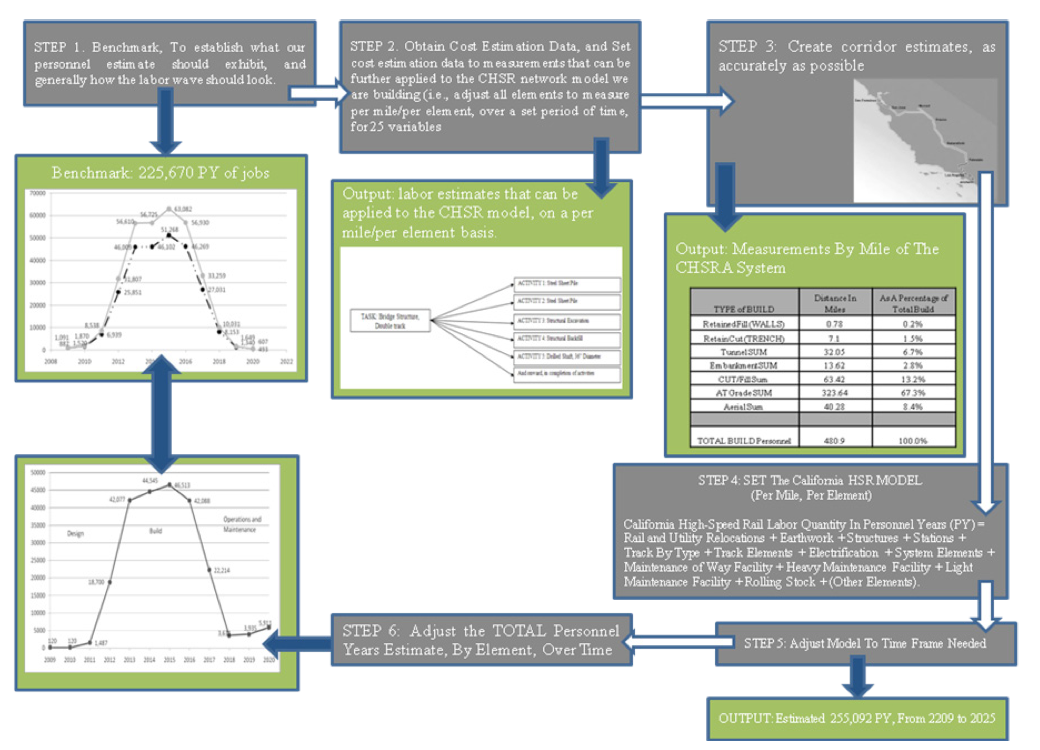MINETA TRANSPORTATION INSTITUTE
Introduction
This study assesses the overall employment, education, and training needs associated with building the California High-Speed Rail (CHSR) network. Given the high profile of national and state commitments to the project, a comprehensive analysis that discusses the education, training, and related needs that will be created during the build-out of the California HSR network is essential. By estimating the people power, skills, and knowledge required to complete the network, this report identifies the workforce development challenges that lie ahead in the build-out and eventual operation of the CHSR system. In addition, this report seeks to develop insight into how these challenges can be addressed by the California education system at all levels. The project is designed to explore the following questions:
• What are the types of workers required by the CHSR network at the various phases of the project’s life over the next 15 years?
• How many of each type of employee are needed over the life of the project, and how do such estimates change over the life of the project?
• What are the specific skills and knowledge required by the CHSR workforce?
• What is the existing capacity for training and educating this workforce, and how must it adapt to the challenges posed at each stage of the CHSR?
Answers to these and related questions are explored to advance a firm understanding of the education needs of the CHSR network workforce, and to identify notable shortcomings in the existing workforce and education system that pertain to HSR matters.
About Mineta Transportation Institute
transweb.sjsu.edu
“The Mineta Transportation Institute (MTI) conducts research, education, and information and technology transfer, focusing on multimodal surface transportation policy and management issues. It was established by Congress in 1991 as part of the Intermodal Surface Transportation Efficiency Act (ISTEA) and was reauthorized under TEA-21 and again under SAFETEA-LU. The Institute is funded by Congress through the US Department of Transportation’s (DOT) Research and Innovative Technology Administration, by the California Legislature through the Department of Transportation (Caltrans), and by other public and private grants and donations, including grants from the US Department of Homeland Security. DOT selected MTI as a National Center of Excellence following competitions in 2002 and 2006. The internationally respected members of the MTI Board of Trustees represent all major surface transportation modes. MTI’s focus on policy and management resulted from the Board’s assessment of the transportation industry’s unmet needs. That led directly to choosing the José State University College of Business as the Institute’s home.”







 RSS Feed
RSS Feed